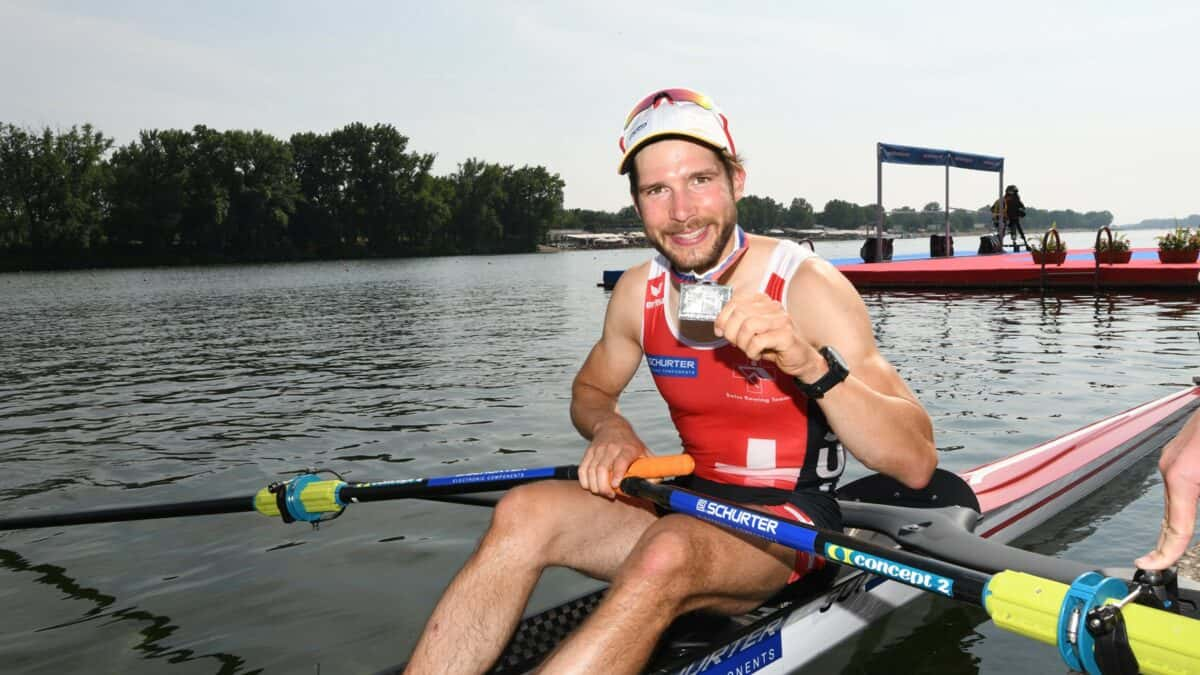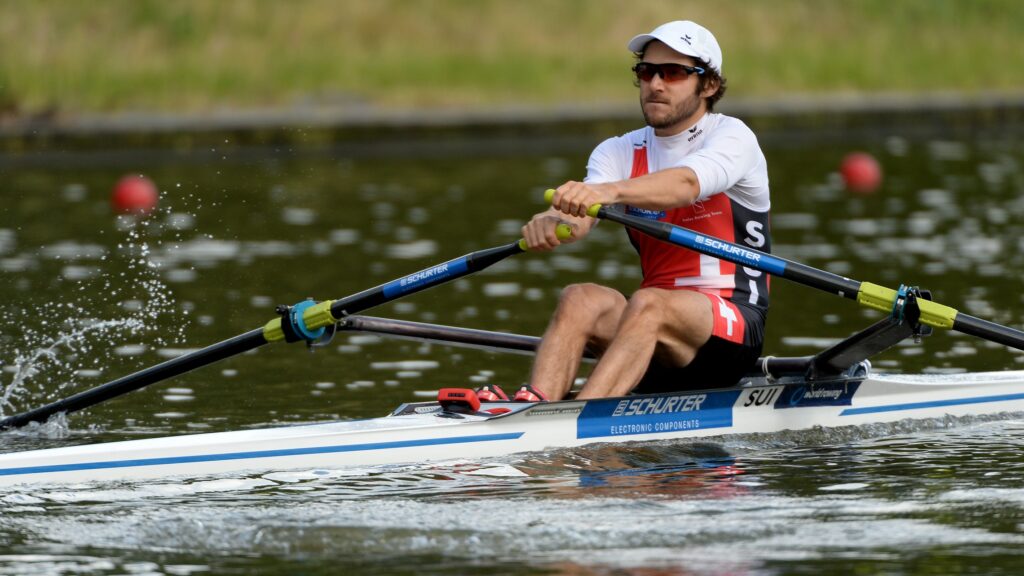
20 Apr 2021
The motivation factor in rower success. Using psychological measurements
There is often cross-over between personal and professional life – drawing your hobbies and interests into your work. But what if you drew upon your professional athletic career for research ideas? That’s exactly what Swiss lightweight rower Michael Schmid did.
Schmid started rowing for the Swiss national team in 2004, when he raced in the junior men’s quadruple sculls. In 2011, he transferred into the lightweight men’s double sculls – eventually qualifying for the 2016 Olympic Games in Rio. Schmid truly found his stride in 2017, picking up a gold medal at the European Rowing Championships in the lightweight men’s single and managing to repeat that performance in 2018, along with a silver medal at the World Rowing Championships.
Alongside rowing, Schmid continued his education, pursuing a doctorate in sport science. His interest in sport psychology, research and rowing collided when he experienced and witnessed the national team selection process. Schmid wondered why smaller rowers, like himself or fellow Swiss rower Jeannine Gmelin, were successful, despite not fitting the standard selection criteria. In rowing, the criteria are often based on height and erg score.

“Of course the height and weight of a rower are important, but it’s only two measures,” Schmid says. “And there are so many other important things to be good in rowing, like technique, mental toughness or motivation. I always believed that if you work hard, harder than others who have a better physique than you, maybe you could beat them.”
Schmid’s belief in hard work paid off in his own career. After many coaches told him that he was ‘just too small’ to be a good rower, Schmid still managed to reach the highest level in the sport. And he saw it happening around him – smaller rowers who were particularly motivated, were able to out-perform those with better physical attributes.
Together with his Professor Achim Conzelmann and colleague Claudia Zuber at the University of Bern, Switzerland, Schmid designed a study. Could the athlete’s motivation also be used as a selection indicator in rowing?
“Motivation is not extremely difficult to measure,” Schmid says. “But normally you measure it by self-report questionnaires. If you ask an athlete in the selection process to self-report their motivation they will, of course, say that they are super motivated. So instead, we measured ‘achievement motivated behaviour.’ It’s measured from the coach’s perspective. The coaches are asked to rate the athlete’s behaviour.”
Schmid, a PhD student and research assistant, admits that it’s not perfect, but it does give a good indication, and it’s ‘better than nothing’.
So, what did they find?
The highly motivated rowers, even though they were not the fastest on the ergometer, were more likely to be at the highest performance level 30 months later than the less motivated rowers.

“We had two groups with the same performance on the erg, but in one group the athletes were showing more achievement-motivated behavior than the athletes from the other group. And the ones who were more motivated, they went more often to international championships over the 30-month period than the less motivated,” Schmid says.
“The initial ergometer performance was the same, so if you had selected only on performance, you would maybe select some athletes who didn’t have the best prospects because you left out the psychological variable.”
For Schmid it’s clear, psychological factors should be taken into consideration in the selection process. While it’s too late for his own rowing career – he retired in 2019 – Schmid is convinced that this research can help the selection process for others. Yet in many cases, it is still not being applied.
“What is clear when you look at the selection criteria from the (sports) federations, normally you don’t find anything about psychological variables or characteristics,” he says. Although, Schmid does see some movement in the sport world to start using this type of approach.
“There are some federations in Switzerland which are using this approach and the Swiss Olympic Association is promoting it. But the federations have to decide if it’s useful for them or not. We know now that it is beneficial and it can help. But in the end, the federations have to have the resources, the people to do the evaluations and the support from the coaches,” Schmid says.
Whether or not federations use the psychological variables in selection, they are still an important factor. Like any physical muscle, psychological characteristics can also be trained.
“The same as with physical talent, you can change it a certain amount,” Schmid says. “Of course, some people are just tougher, or are better at pursuing goals. But if it’s difficult for you, you can work on that. Like other parts of athletic development, you can also develop your psychological skills.”
Identifying if athletes are lacking motivation and helping them to improve it, might result in more talented athletes both physically and mentally. Schmid hopes that this research will have broader implications for selection and athlete development – and that selection committees from the national to the local level will consider implementing it.
In the meantime, according to Schmid, we are only seeing half the picture.
For more information on the study, click here: https://journals.sagepub.com/doi/10.1177/1747954120953658

